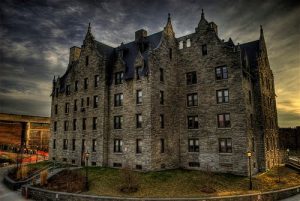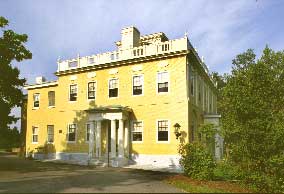Ghost stories and perception of haunting at UVM and in the Burlington area influence how people interact with places that are supposedly haunted, causing people to assign meaning to these spaces that are reproduced over time. This theme is not exclusive to the Burlington community; it is something that exists across cultures around the world.
Reported hauntings are strongly correlated with an experience of trauma in a place, and the Burlington area is no exception. Whether it is the death of a husband, suicide, or a historically stressful space, trauma and use of a space is heavily implicated in the existence of hauntings.
Our findings also exemplified that the use and perception of place influences whether students believe in a ghost story of their experience with a haunting. In numerous interviews, both archived and contemporary, we discovered that building renovations either stirred or stopped hauntings, and the spread of ghost stories. For example, as the building of Converse aged, it became the “spooky” “old” “castle-y” building on campus, making a haunting seem possible. However, many noted the older infrastructure of the building- such as the pipes- and used the idea of a haunting to “poke fun” at this.
How much a place is frequented by faculty or students impacts the amount of activity found or reported there. In the 1970s and 1980s, the residents of Converse Hall actively engaged with Henry, throwing him parties. As more residences halls opened, more student recreational space was added, and campus culture changed with modernity, the engagement with hauntings and ghost stories diminished.

In both our scholarly framework and our contemporary research, we found that people who believe in ghosts don’t tend to come face-to-face with them, but instead experience their presence through unexplained disruptions within the space as well as in their bodies that occur. Perceptions of these disruptions (random banging on walls, flickering of lights, flushing of toilets when no one else is around, bad chills, cold spots, fear) are essential in determining whether a person believes in ghosts or not. The debate isn’t whether or not these things are occurring, it is over what is causing them.